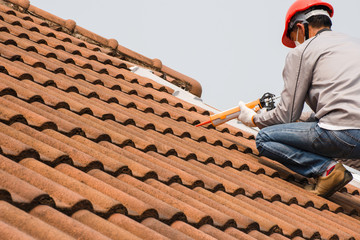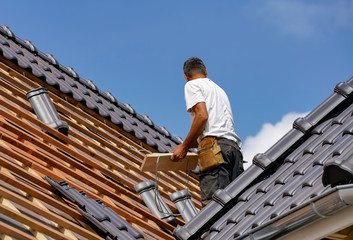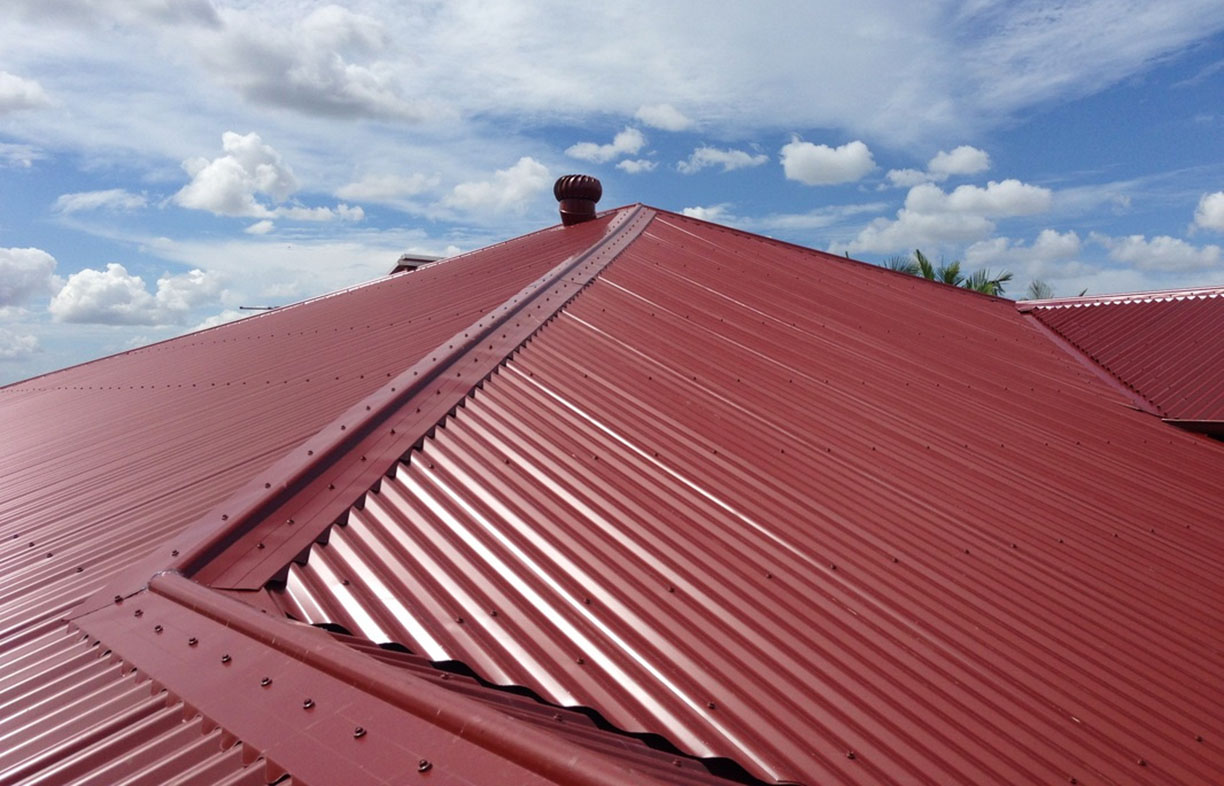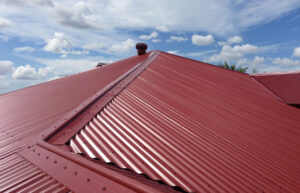Residential roofing contractors work on structures built for people to live in, such as houses. Their responsibilities include installing, repairing, and maintaining roofs. They also help clients choose the best materials for their homes.

Local roofers know your area’s weather conditions and what types of roofs will protect your home best. They also have fewer business expenses and can pass the savings on to you. Visit https://www.portcharlotteroofers.com/ to learn more.
A well-installed roof is a vital component of any home. It protects the house from rain, snow, wind and any other weather conditions that might damage it. It also enhances the overall look of a home. In addition, a properly installed roof can increase energy efficiency and reduce utility bills. Consequently, it pays to work with a professional residential roofer when installing a new roof.
Before starting a roofing project, the roofers will conduct a comprehensive assessment of the existing roof to determine its condition and identify any problems. This assessment will help the roofing team develop an appropriate plan of action going forward. It will also enable them to provide an accurate estimate of the cost of the project.
Preparing the worksite is another crucial step in the residential roofing process. It involves implementing comprehensive safety protocols and securing the area to prevent accidents and injuries. This will ensure that the roofers are able to focus on delivering high-quality results.
During the installation phase, the roofers will apply the desired roofing material, following the manufacturer’s instructions and best practices. This will ensure a precise and effective installation, maximizing the durability and lifespan of the roof. In some cases, the roofers may choose to install additional insulation to improve the energy efficiency of a property.
If you’re building a new home, the roofers will make sure that all necessary permits and inspections are obtained before beginning the roofing work. They will also ensure that the work is performed according to local building codes and safety regulations.
It’s essential to choose a roofer with years of experience and a proven track record. In addition, they should be licensed and insured. Be wary of any company that refuses to provide references or customer testimonials. It’s a red flag that they might be using low-quality materials or avoiding warranty questions. It’s also a good idea to choose a local roofer, as they will be more easily accessible and familiar with local laws and building code requirements.
Repair
When your roof needs repair, residential roofers arrive early and begin preparing the work area. They cover plants and shrubs with tarpaulin, and they set up a dumpster for the old materials. Then they start taking off the existing roof, which can be metal, tile, shingle or shakes. They also remove rubber or lead boots around sanitary stacks and other projections, as well as vents and drip edges.
A compromised roof allows conditioned air to escape and outside air to infiltrate, which means that your heating or cooling system has to work harder to maintain an ideal temperature. By repairing leaks and insulating the roof, you can significantly reduce energy costs.
Aside from keeping your home comfortable, a timely roof repair can increase its value. If you plan on selling your home in the future, a well-maintained roof can help you get the best price. Homebuyers are often willing to overlook minor maintenance issues with the roof in order to win a competitive bidding war. However, you should be aware that a roof in poor condition may cause your lender to deny you financing at closing. It is important to consult a real estate professional for advice on this matter.
Maintenance
Performing regular roof maintenance can help extend the life of your home’s roofing system and save you money on energy bills. Regular visual inspections and cleaning can also prevent potential problems from arising. Keeping up with these tasks can also improve your property’s curb appeal and enhance its value if you plan to sell it. Residential roofers have the training and expertise to perform these tasks safely and effectively.
Whether you need a new roof or are just curious about the condition of your existing one, a qualified residential roofer can inspect it and provide recommendations. These professionals are able to identify signs of deterioration, such as cracks, leaks and moss growth, and make repairs accordingly. They can also repair or replace damaged gutters, skylights and chimneys.
Roofers may also work on a team, collaborating with contractors, carpenters and electricians. They should have strong communication and customer service skills to interact with clients, addressing their questions and concerns. They also need to be able to understand the technical details of roofing materials, techniques and maintenance.
A professional roofing contractor should have a license. This means they have met the minimum education, experience and examination requirements for a specific trade. Licensing is also a way to protect consumers from unlicensed contractors who may not have the necessary skills or insurance coverage.
If a roofing company doesn’t have a license, you should avoid hiring them for your project. Besides being illegal, working without a license in the construction trade can lead to expensive problems. The contractor could be held liable for damages and fined.
A licensed residential roofer can install and repair sloped or flat residential roofing systems, using materials such as asphalt shingles and rubber from manufacturers like Firestone and Owens Corning. They can also install roof ventilation and insulation, as well as waterproof membranes. These specialists can also handle commercial low-sloped roofing with PVC, TPO and EPDM components. They can also perform seamless gutter projects.
Insulation
Insulating your roof is one of the most effective energy-saving projects you can undertake. It prevents heat from escaping the building in the winter and keeps it cool in the summer. This not only helps you save on energy bills but also reduces your carbon footprint. The best residential roofers can provide you with a range of insulation materials and methods to suit your budget and location.
The type of insulation you choose depends on several factors, including the climate in your area and how much space you have available for installation. Popular options include fiberglass, cellulose, and spray foam. Fiberglass is a cost-effective choice that offers a high R-value and is available in a variety of thicknesses. Cellulose is an eco-friendly option that is made from recycled materials and is also fire-resistant. Foam board insulation is made of polystyrene, polyurethane, or polyisocyanurate and is a good choice for tight spaces. It also offers a high R-value and is easy to install.
In addition to improving energy efficiency, roof insulation can also prevent moisture and mold. It does so by preventing heat from rising into the attic or crawlspace and warming the roof. It also stops warm air from absorbing cold surfaces and causing condensation. In turn, it prevents ice dams and leaks.
You can find a variety of different types of insulation, but the most important thing is to have it installed properly by a professional. Your roofer will use a special tool to test your home’s air leakage and then recommend the most appropriate solution. They may also offer a free insulation estimate and can even help you apply for federal rebates.
If you’re installing the insulation yourself, make sure to wear proper protective equipment, such as coveralls, a face mask, and eye protection. You’ll also need a calculator and a measuring tape. To determine the square footage of the area you want to insulate, measure its length and width in inches and then convert that number to square feet. You should also make sure you have the proper personal protective equipment when entering an attic or crawlspace, as these unfinished areas can contain toxic substances.







